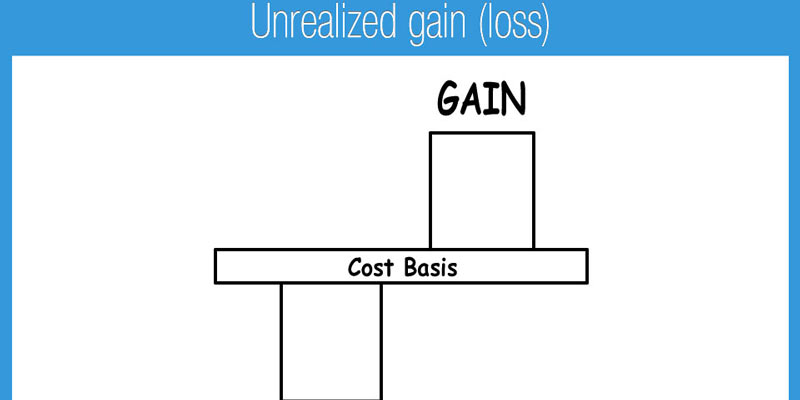What Is a Covenant-Lite Loan?
Jan 07, 2025 By Kelly Walker
Covenant-lite loans are an innovative new way for businesses to access the credit they need. But what exactly is a covenant-lite loan, and how does it compare to traditional loans? We'll be diving deep into covenant-lite loans: from definition and background information all the way through to practical advice on whether or not such a debt instrument may be right for your business needs.
By the end of this article, you should have all the knowledge necessary to decide whether a covenant-lite loan is suitable for your company's goals.
Covenant-Lite Loan

A covenant-lite loan is a corporate loan with fewer restrictions than traditional loans. They are also known as "light covenants" or "lightly restricted" loans. This means they come without the usual requirements that banks or other lenders need borrowers to meet to ensure debt repayment.
The lack of restrictive covenants makes covenant-lite loans attractive for borrowers who may have difficulty meeting the conditions usually associated with conventional credit facilities, such as minimum net worth requirements and leverage ratio thresholds.
Different Types of Covenants on Covenant-Lite Loans

- While covenant-lite loans may not include traditional restrictive covenants, they come with other conditions. In particular, three main types of covenants can be found on these loans:
- Equity Cure Covenants: This type of covenant allows borrowers to make an equity injection into their company to meet any financial metrics required by the lenders' agreement.
- Negative Pledge Covenants: This is a promise from the borrower to not pledge or encumber any of its assets without the lender’s consent.
- Step-in Rights Agreement: This clause grants lenders the right to step in and take control of certain assets if the borrower defaults on their loan payments.
Process of Applying for a Covenant-Lite Loan
Applying for a covenant-lite loan is similar to applying for any other type. The process usually begins with the borrower submitting a formal application and supporting documentation, such as financial statements and proof of collateral.
Once the lender has reviewed the application, an underwriting process takes place to assess whether or not the borrower meets its credit criteria. During this process, lenders will look at the borrower’s past credit history, current financial situation, and debt repayment ability.
Following approval from the lender, both parties draw up and sign a covenant-lite loan contract. Borrowers need to understand any terms specified in their loan agreement before signing to be aware of any restrictions or penalties that may apply.
The borrower then makes regular repayments on the loan according to the agreed-upon schedule until it is fully repaid.
Advantages and Disadvantages of Covenant-Lite Loans
Advantages
- Lower Interest Rates - Covenant-lite loans usually have lower interest rates than traditional loans, making them more affordable for borrowers.
- Flexible Repayment Options - These loans often offer flexible repayment terms, allowing borrowers to choose the structure that best suits their financial needs.
- Faster Approval Times - Because covenant-lite loans have fewer restrictions, the approval process is typically faster than for a traditional loan, meaning businesses can access capital quicker to meet their immediate needs.
- Fewer Restrictions - Covenant-lite loans have fewer restrictive covenants, meaning borrowers don't need strict guidelines to secure and maintain the loan.
- Easier to Obtain - Covenant-lite loans are easier for borrowers as they usually require fewer documents than traditional loans, such as financial statements and proof of collateral.
- More Accessible - With their lower rates, flexible terms, and quick approval times, covenant-lite loans offer businesses more access to credit than traditional loans might be able to provide.
Disadvantages
- Higher Risk of Default - Due to their lack of restrictions, there is a higher risk that borrowers may default on their covenant-lite loan payments compared with traditional loans, where borrowers must meet certain criteria to remain in good standing with their lender.
- Limited Availability - Covenant-lite loans are only available from some lenders, meaning borrowers may need to shop around for the best deal and have fewer options than traditional loans.
- Less Protection - As covenant-lite loans come with fewer restrictions and less protection for the lender, they may be more expensive than other types of debt financing.
- Difficult to Monitor - Without the requirements of a traditional loan, it can be difficult to monitor borrowers’ compliance with repayment terms and conditions. This could lead to delayed payments or potential defaults on the loan if the borrower cannot meet their obligations under the agreement.
Covenant-lite loans can be a great option for businesses looking to access credit quickly and easily, but they come with a few risks and drawbacks that should be considered before deciding to go down this route. It is important to weigh the pros and cons of covenant-lite loans against traditional options to ensure you are making the right decision for your business’s needs.
FAQS
What is covenant used for?
A covenant is an agreement between two or more parties that outlines a loan's terms and conditions, including repayment schedule, interest rate, and other obligations. It can also protect the lender if the borrower fails to meet their obligations under the agreement.
Is a covenant-lite loan better than a traditional loan?
It depends on your specific needs and situation. Covenant-lite loans typically come with lower interest rates, flexible repayment terms, and faster approval times - all advantages for borrowers. However, they also involve a higher risk of default due to fewer restrictions, limited availability from lenders, and less protection from the lender.
What is the power of covenant?
The power of a covenant lies in its ability to protect the lender from default if the borrower fails to meet the obligations outlined in the agreement. Covenant also provides an efficient way for businesses to access credit quickly and easily and offers more flexible repayment terms than traditional loans.
Conclusion
Covenant-lite loans are an increasingly popular financing option for corporations. By leveraging the lack of onerous and restrictive loan covenants, covenant-lite loans allow companies to access cheaper funds and borrow money with greater flexible repayment terms. These loan agreements have become increasingly desirable for banks and borrowers alike. Aside from all other advantages, this financing agreement benefits both parties involved because it offers greater potential returns for lenders and reduces debt obligations for borrowers.

What Is Debt Signaling?

What Are Unrealized Gains and Losses?

How Is Margin Interest Calculated?

Why Not Buy Before the Dividend and Then Sell?

Best Bloomberg Terminal Alternatives

Best Debt Relief Companies

How to Get a Mortgage Without a Job: 5 Tips for Success

Best Biotech ETFs

4 Ways to Remove Your Name Off a Cosigned Loan

